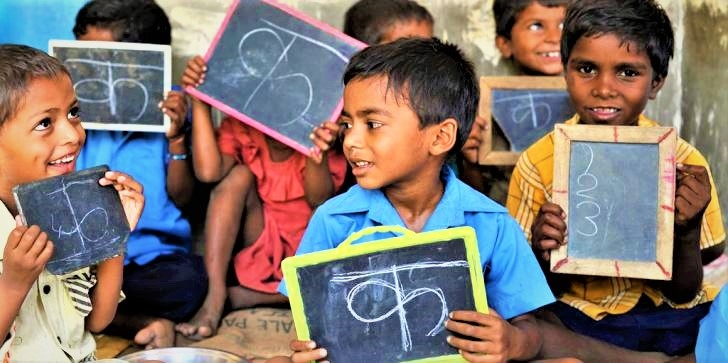| Date: 17-Sep-2021 |

The National Commission for Protection of Child Rights has submitted a detailed report in March 2021 about the Impact of exemption under Article 15(5) with respect to Article 21A of the Constitution of India on the education of children of Minority communities, with an objective to study the impact of exemption under Article 15(5) with respect to Article 21A of the Constitution of India.
The aforesaid report reveals inter alia that 62.50% of students in Minority Educational institutions belong to non-Minority communities. The Report further reveals that in Andhra Pradesh, Jharkhand, Punjab, Chandigarh, Chhattisgarh, Daman & Diu, Dadra & Nagar Haveli, Delhi, Haryana, Madhya Pradesh, Puducherry, Rajasthan, Uttarakhand this percentage goes up to more than 70%. In the absence of any clear guidelines with regard to the minimum levels of enrolment of Minority students, the minority schools are catering only to 7.95% of the minority children population in the States. While schools being run by the Muslim community have more than 75% of the student population belonging to the Muslim Community. On the other hand, the figures of schools established by Jains community is less than 20% and for the Sikh, Buddhist, Parsi and Christian community, the figure is less than 30% respectively. Since Minority Educational Institutions are outside the net of the RTE Act, therefore many of them are deprived of good infrastructure, quality and an adequate number of teachers, books, uniform and mid-day meals etc. The Fundamental Right of Free & Compulsory education of lakhs of children (6-14 years) belonging to Minority Community is being violated.
In fact, in November 2006, The Prime Minister's High-Level Committee for Preparation of Report on Social, Economic and Educational Status of the Muslim Community of India, under the Chairmanship of Justice Rajindar Sachar, submitted its Report. The Report has highlighted the poor socio, economic and educational status of the Muslim community.
The Fundamental Rights of free and compulsory education guaranteed under Article 21-A and recognized under the RTE Act must be available to all children in the country irrespective of their religion. The right of a child should not be restricted only to free and compulsory education but should be extended to have quality education, without any discrimination on the ground of their economic, social and cultural background. The States will treat all religions and religious groups equally and can make special provisions for women and children.
In a catena of Judgments that interference in matters of regulations is permissible, so long as that regulation is directed towards achieving educational excellence. In fact, the State has the power to make Regulatory measures even in respect of the Minority institutions.
In T.M.A. Pai Foundation and Ors. Vs. State of Karnataka and Ors., (2002) 8 SCC 481, where this Hon’ble Court at para 107 held as follows:
“....Any regulation framed in the national interest must necessarily apply to all educational institutions, whether run by the majority or the minority. Such a limitation must necessarily be read into Article 30. The right under Article 30(1) cannot be such as to override the national interest or to prevent the government from framing regulations in that behalf. It is, of course, true that government regulations cannot destroy the minority character of the institution or make the right to establish and administer a mere illusion; but the right under Article 30 is not so absolute as to be above the law.”
The minority institutions do not want the RTE Act to apply to them in the name of protecting the Minority Character of their institution as well as safeguarding their Right to establish and administer these institutions, on the other hand, they are admitting children belonging to non-minority communities, presumably for monetary gains and profit and not an adequate number of children belonging to the minority communities are in fact studying in these institutions. This is also defeating the goal of achieving compulsory elementary education in the country. Principles of Equity, Equality and Justice for the children of our country merits the law to be the same for all and not distinguish between them.
The goal of attaining free and compulsory education for all children in age groups 6-14 is not possible if the Minority Institutions are completely kept outside the scope and ambit of the RTE Act. The underlying philosophy and objective of Articles 15(5), 29 & 30 are being defeated since Minority Educational Institutions are not working solely for the welfare of students from minority communities but for ulterior motives. We feel upon consideration of catena of Judgments of the Honourable Supreme Court of India that the Sections 1(4) and 1(5) of the RTE Act are Ultra vires to Article 1(4) and 21-A of Constitution Of India, as they Deprive Educational Excellence To Children Belonging To Minority Communities.
Gautam Jha is an Advocate On Record, practising before the Supreme Court Of India. Pankaj Kumar is a Former Expert On Mission to the United Nations High Commissioner For The Refugees and Advocate, Supreme Court Of India.